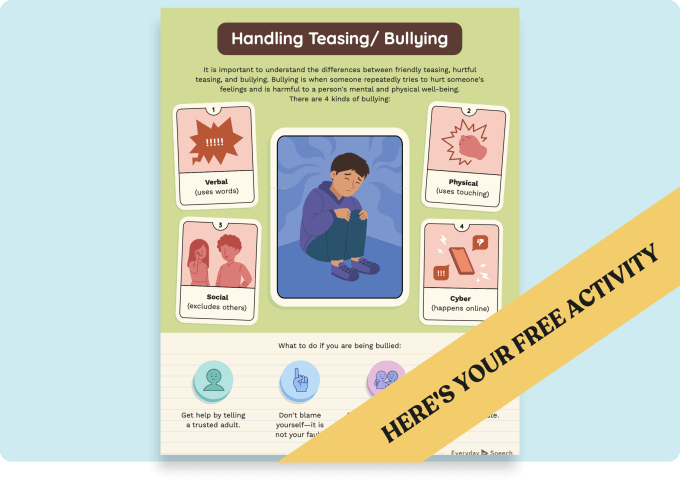Tips for Teaching Effective Storytelling Skills to Students
Get free social skills materials
No-prep lessons on self-regulation, emotional recognition, conversation skills, and more.
Sign up hereIntroduction
Storytelling is an essential skill that plays a crucial role in communication and building relationships. By teaching students how to effectively share their experiences, we can enhance their social-emotional learning journey. In this blog post, we will discuss an easy no-prep activity for educators to help students improve their storytelling, followed by discussion questions and related skills that can further aid in their development.
No-Prep Activity
The “Three-to-Four Sentences Storytelling” activity is a simple, no-prep exercise that helps students practice concise and engaging storytelling. In this activity, students are encouraged to share a personal story or experience using only three to four sentences. Here’s how it works:
- Ask students to think of a recent event or experience they would like to share.
- Encourage them to focus on the main details, such as where they went, what they did, and who they were with.
- Have students share their stories in three to four sentences, ensuring they include the key details.
This activity not only helps students practice their storytelling skills but also encourages them to listen attentively to their peers and engage in meaningful conversations.
Discussion Questions
To stimulate further discussions and reflection on effective storytelling, consider asking your students the following questions:
- Why is it important to include key details in a story? How does it help others understand and engage with your experience?
- How can effective storytelling help you build stronger connections with your peers and friends?
- What are some challenges you face when trying to share a story with others? How can you overcome these challenges?
- Can you think of a time when someone else’s story made a lasting impact on you? What made it memorable?
- How can you apply the skills you’ve learned in this activity to other areas of your life, such as presentations or group projects?
Related Skills
As students improve their storytelling abilities, it’s important to introduce them to other related skills that can further enhance their social-emotional learning experience. Some of these skills include:
- Active listening: Encourage students to pay close attention to their peers’ stories, ask follow-up questions, and show empathy.
- Non-verbal communication: Teach students the importance of body language, facial expressions, and gestures in conveying their message effectively.
- Public speaking: Help students develop confidence and poise when sharing their stories in front of a group.
- Critical thinking: Encourage students to analyze and reflect on their own experiences, as well as those of others, to gain a deeper understanding of the world around them.
Next Steps
If you’d like to explore more resources to help your students develop effective storytelling skills and other social-emotional learning competencies, we invite you to sign up for free samples at Everyday Speech. Our platform offers a wide range of materials, including videos, games, and worksheets, designed to support educators in fostering a positive learning environment for their students.

